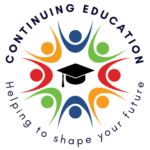Grades: 11, 12 (YCDSB students only)
A select group of YCDSB secondary schools has been chosen to host International Baccalaureate (IB) programs. The IB program empowers students to chart their own educational journey, fostering the acquisition of skills and confidence essential for personal growth and making a meaningful impact. It positions teachers as facilitators of learning excellence, collaborating with dedicated colleagues within a fulfilling career bolstered by a robust global network. Furthermore, IB cultivates a positive reputation for schools, contributing to successful outcomes that elevate the entire community.
Grade 11 – IDC3O7 – Interdisciplinary Studies -Extended Essay (EE)
The extended essay serves as practical preparation for undergraduate research, offering students the chance to explore a topic personally meaningful to them within the context of their studies. Throughout the extended essay’s research phase, students cultivate skills such as formulating a pertinent research question, conducting a personal exploration of the subject, articulating ideas, and constructing a compelling argument. Engaging in this process enhances the ability to analyze, synthesize, and evaluate knowledge.
Students receive continuous support during the extended essay’s research and writing phases, benefitting from advice and guidance provided by a supervisor, typically a teacher at the school. Furthermore, the extended essay and reflection sessions can serve as a valuable catalyst for discussion, particularly in regions where interviews are a prerequisite for employment or university admissions.
Grade 12 – IDC4O7 – Interdisciplinary Studies – Theory of Knowledge (TOK)
Within the International Baccalaureate Programme, the Theory of Knowledge (TOK) assumes a distinctive role, serving as a platform for students to contemplate the essence of knowledge and the mechanisms by which we substantiate our claims to knowing. TOK endeavors to foster an understanding of the interpretative nature of knowledge, delving into personal ideological biases and prompting reflection on whether these biases are upheld, revised, or discarded. This framework offers both students and their educators an opportunity for critical reflection on diverse modes of understanding and various knowledge domains. It encourages an examination of the role and nature of knowledge within one’s own culture, in the cultures of others, and in the broader global context.
Moreover, TOK urges students to recognize themselves as thinkers, prompting a deeper engagement with the intricacies of knowledge and an acknowledgment of the imperative to act responsibly in an increasingly interconnected yet uncertain world. By linking academic disciplines and transcending their boundaries, TOK provides coherence for students, illustrating how they can apply their knowledge with heightened awareness and credibility.
